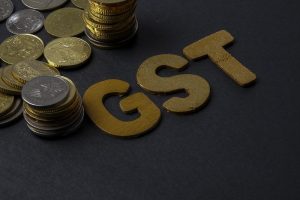
The Finance Ministry on Friday urged industry to do some advocacy with the States to help resolve their concerns around multiple assessments and audits under the Goods and Services Tax (GST) framework.
On its part, the Revenue Department would also talk to States to see how industry concerns could be addressed on this front, a top Finance Ministry official said.
Although GST has been touted as a ‘One Nation One Tax’, the ground reality for corporates with pan-India operations is that they are subjected to assessments and audits of 30 different States (depending on place of business activity), complicating their compliance efforts.
“On GST, we have in recent years taken a big leap. But still with 30 States, there are 30 taxes. So You (industry) now have multiple registrations and assessments at each State because there are 30 taxes.
“Now how do we reduce from 30 to one. Like it bothers you, it bothers us also. we need a collaborative approach with all the States.
“My request to you (industry) is you also do some advocacy and talk to stakeholders in various States. We will also do that,” Sanjay Malhotra, Revenue Secretary, said at a Confederation of Indian Industry (CII) organised post-Budget interactive session with Finance Ministry in the Capital.
Malhotra was responding to a question from Cavinkare’s top official, who pointed out that Companies with pan India operations have still to go through assessments and audits in different States under GST system. It was submitted that if there can be a centralised assessment or audit, this could help industry in its compliance much more efficiently.
Malhotra made it clear that no short term or immediate solution can be arrived at on this front. “This will happen over a period of time. We need to keep speaking about it and working on it. It is a difficult task,” Malhotra added.
BUDGET FOCUS
Malhotra said that the primary focus of the Union Budget has been on the taxpayers. The Budget tax proposals have been framed to promote rationalisation, simplification, competitiveness, reduction in compliance burden, and ease of paying taxes, he added.
He said that the Government values interactions with the industry before, during, and after the budget-making process and will ensure that the trust placed by taxpayers is duly acknowledged by the government, by way of a consultative and collaborative policy making process.
PARTNERING INDUSTRY
Malhotra also said that government was willing to partner and collaborate with industry for the proposed comprehensive review of Income Tax Act 1961.
“We see industry as partners. We have an approach of collaboration and not confrontation. We will move forward together to make India strong and continue to collaborate with you on proposed review of Income Tax Act and take all your suggestions,” Malhotra said.
He was responding to CII Director General Chandrajit Banerjee’s submission that CII would like to work on providing comprehensive inputs to the government during the consultation process.
“The Finance Minister’s announcement in Budget speech about intent to review the income tax Act within six months is a strong statement. If there is a role we could play from CII as you work towards that, we would wish to understand from you as to how we could contribute to the exercise,” Banerjee said.
On fiscal glide path announced in Budget, Banerjee expressed confidence that it would crowd-in strong investments. “We see strong role of industry in this and your advice in that partnership will be of great value to us,” Banerjee added.
CII also suggested that industry could partner government to develop joint consensus on rationalisation of customs tariffs as was proposed in budget.
TAX-GDP RATIO
To a question from Banerjee as to how does Government look at increasing tax base, Malhotra noted that there is no simple solution to enhance the tax base. “While we do need to enhance tax base, our combined tax-GDP ratio (centre and states) at 18 per cent is not low. Given our level of development, we are not doing poorly. As India continues to develop, there will be more formalisation of economy and therefore expansion of tax base”, he said.
Source: The Hindu Business Line


